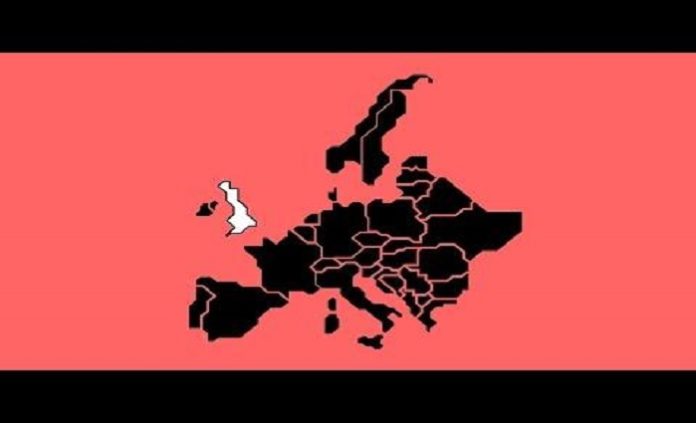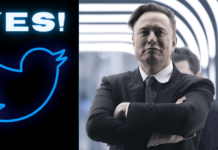
In the weeks before Brits set off to cast their vote in the European Union Referendum, articles in support of both vote leave and vote stay consumed the internet.
While the right side argued that as an independent nation we will have control over our own boarders, the left warned that leaving could result in 10 years of uncertainty as new trade deals are formed. However, despite the countless arguments for vote leave and vote stay, it is argued that one merely has to look across the water in order to see the positives and negatives of both outcomes.
In 1994, Norway voted in its own referendum that it did not wish to enter the European Union. Today, Norway, Iceland, Liechtenstein, and Switzerland, all of which are non-EU members in Europe, lead by example, showing the rest of the continent the benefits of being an independent nation.
Each of these countries boast some of the highest living standards of the world. In fact, some are even attempting to take a giant leap in order to help sustain the natural environment within the country, with Norway preparing to ban the sale of all fossil fuel cars in the next decade.
However, in order for anyone to determine whether being a member of the EU is in the UK’s best interests, one must first understand how the EU works.
Here is a brief outline for how the EU works:
MEP are elected by the general public to represent them at the European Parliament, where members vote for or against proposed new EU laws.
The European Council, which is also not one of the EU’s legislating institutions, “defines the EU’s overall political direction and priorities.” The members of the European Council are the heads of state or government of the 28 EU member states, as well as the European Council president and the president of the European Commission.
The European Commission, which consists of 28 commissioners — one for each member country – is responsible for proposing new legislation. However, unlike MEP, the commissioners are not elected, but are instead chosen by each country’s current leader.
These ideas for these laws come from The European Round Table of Industrialists (ERT), which was formed with the aim of shaping and furthering EU integration. The ERT consists of “around 50 Chief Executives and Chairmen of major multinational companies.”
During the 1990s, the ERT was extremely secretive. In fact, in 1991 the commissioners quietly published their report called “Reshaping Europe,” which mapped out an agenda for the future of Europe – a topic, many would argue, that should be tackled by elected officials.
This issue was made even more apparent in 1997, when the ERT negotiated trade agreement at the OECD called the Multilateral Agreement on Investment (MAI). If passed, the agreement allowed corporations to sue governments if EU laws increasing environmental protection, improving labor standards, securing equal treatment for women, or taxing capital impeded on their profits.
Fortunately, the proposal was leaked, causing the agreement to fall through. In an attempt to overcome this setback, the ERT put the agreement forward again under the name MIA at the WTO. Although the MIA was never passed – the commissioners resigned due to several counts of fraud – the attempt reaffirmed that the commission could easily disregard the peoples best interest in favour of their own.
But why does this happen? Surely we should be able to trust the EU to make decision that are in the peoples best interests. Well, it appears this could not be futher from the truth.
In 2008, just one month after the economy collapsed, the then President of the Commission, José Manuel Barroso, appointed The Independent High Level Group on Financial Supervision, a group of eight men linked to Lehman Brothers, Citigroup, and Goldman Sachs – three of the US banks that were responsible for the collapse of the economy.
The ERT could have chosen to appoint a group of independent economic experts, individuals that would have been objective and impartial, but instead chose to cooperate with the corporations and banks. As a result, it should be clear to see that behind closed doors, away from the prying eyes of all those who are directly affected by these decisions, it is the corporations and banks that are truly deciding what laws the commissioners should create.
This should come as no surprise to those living in the US, as they have been governed in a similar matter for quite some time. According to a recent study by Princeton University, the USA is now covertly ruled by a small group of people in government, big business, media, and the intelligence services.
This revelation becomes all the more concerning once we consider the EU’s plans to build a superstate renamed the United States of Europe, with its own central government, EU army, EU border and coast guards and a European CIA. If successful, each member state will be collectively controlled by corporate and banking elites who will profit from the people ill fortune.
As demonstrated through the ages, if the people take notice and voice their dissatisfaction, change can come to pass. Entire dynasties, some of which had previously been viewed as gods, were overthrown by the people. With this in mind – when will you stand up and make your voice heard? Will you wait until the global elites and one percent have a tighter grasp on your country, your government and your lives?
Image: Flickr, Dragan Tatic
You want to support Anonymous Independent & Investigative News? Please, follow us on Twitter: Follow @AnonymousNewsHQ
This Article (Brexit 101: What We Were Not Told During The European Union Referendum) is free and open source. You have permission to republish this article under a Creative Commons license with attribution to the author and AnonHQ.com.





Belarus (White-Russia) and Ukraine are not part of the EU, nor is Switzerland
well well well, the game-changing fact is left out here: norway is pretty much like a eu member, they agreed to pay the same membership fees as the actual members (and more then GB considering their discount), they accept the standards set by the eu members and they agreed to have open borders to the eu members. all that and more without the right to participate in the legislative process of the creation of those rules. the swiss accepted similar rules. also it shouldn’t be forgotten that norway has a small population and a lot of oil.
@gerrit well said